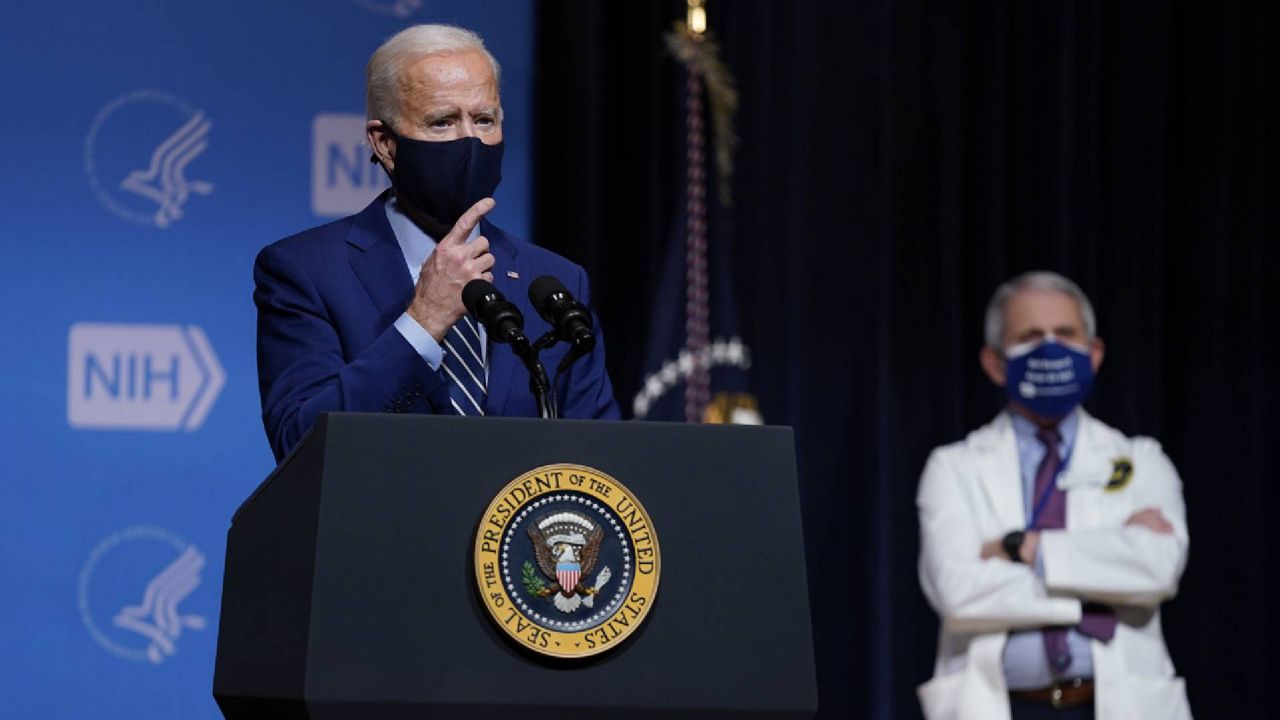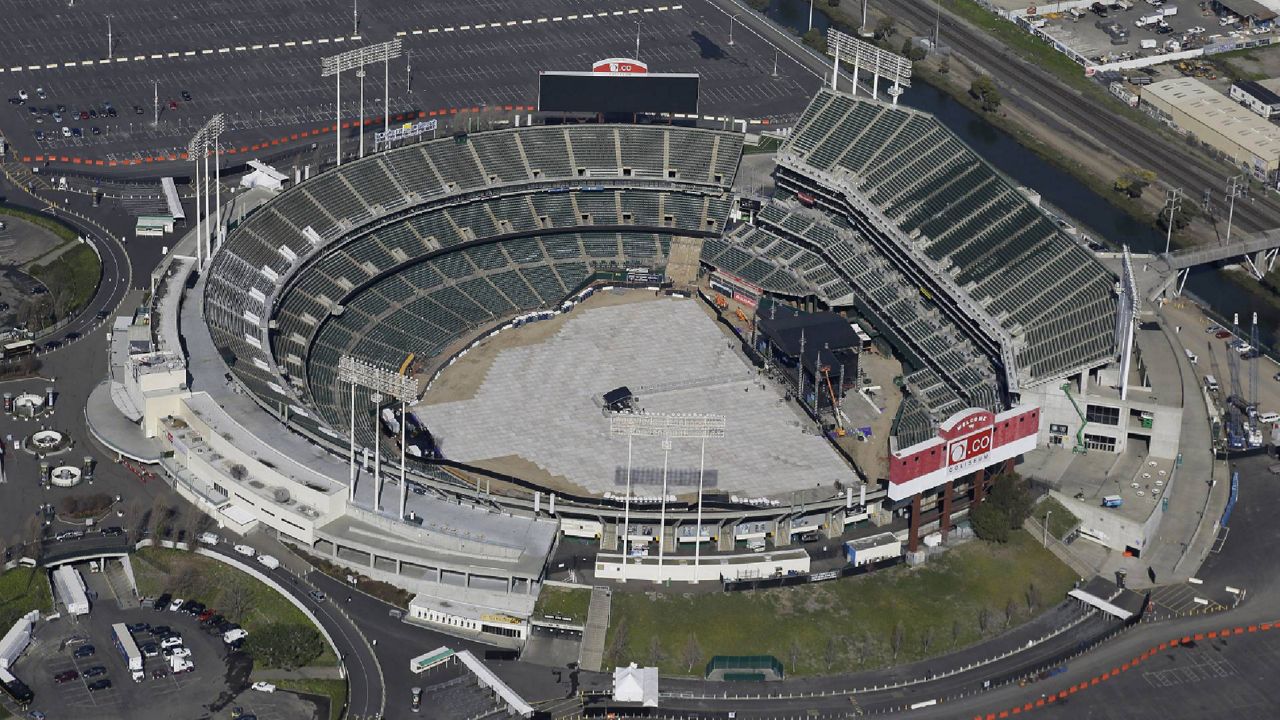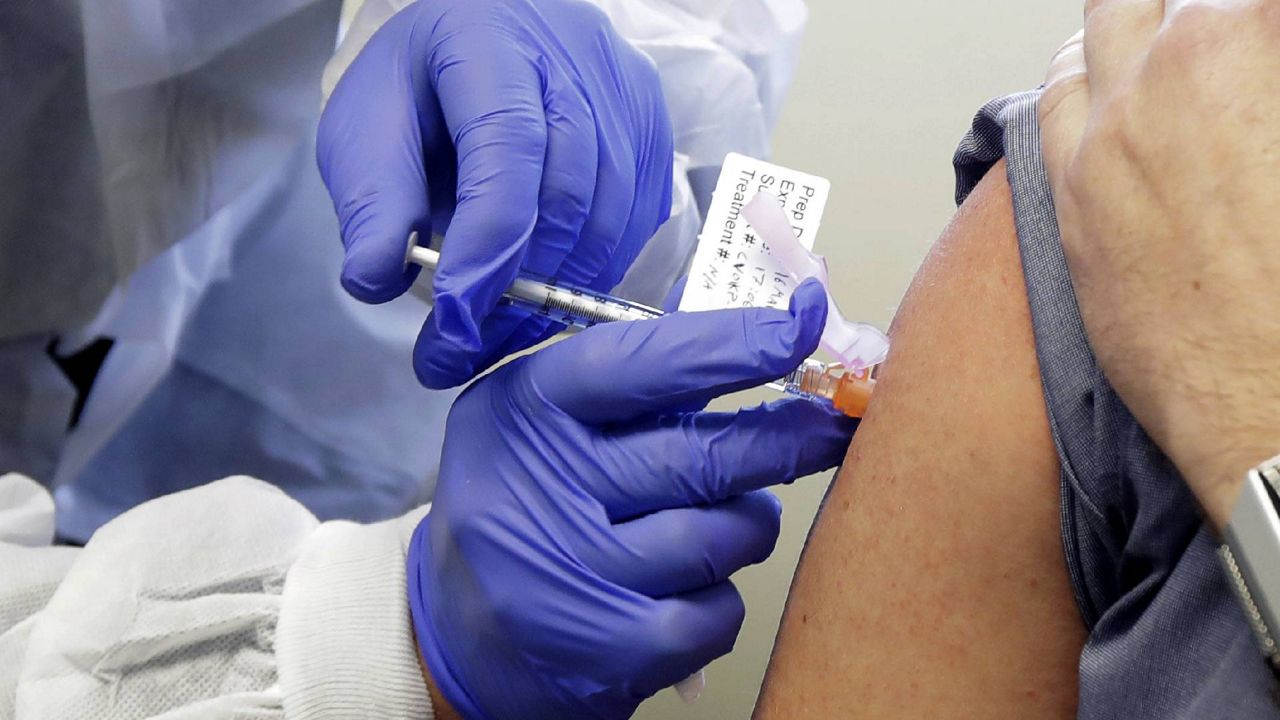As soon as Thursday evening, an independent advisory board could recommend regulators approve the first COVID-19 vaccine for the U.S., setting in motion the possibility of an emergency authorization in the following days.
The Food and Drug Administration’s vaccine advisory panel is meeting virtually on Thursday to review the data submitted by Pfizer and BioNTech, and the panel is set to issue a recommendation on whether to approve the companies’ vaccine candidate by the end of the day.
Pending the panel’s decision, FDA Commissioner Stephen Hahn could issue an Emergency Use Authorization for the vaccine by the end of this weekend, and the first doses are set to ship within 24 hours of the EUA, according to health officials.
The Pfizer vaccine was approved by Canadian regulators Wednesday and in the United Kingdom last week, and the first British citizens were vaccinated Tuesday.
But the vaccine’s authorization would happen after a decision from Operation Warp Speed officials to cut back on the number of doses Pfizer will ship in the first wave.
Once the FDA issues its EUA, 2.9 million doses will go out in the initial phase, down from the 6.4 million previously announced.
The change came from a decision to hold back 500,000 doses for a reserve supply and hold back the second dose until the first doses were shipped, according to General Gustave Perna, who oversees distribution.
“Eventually we will become much more confident in our manufacturing, our distribution process, state handling,” Perna said. “Then the requirement for reserve won’t be necessary.”
States and large cities will receive a number of doses based on their population, and it’s then up to governors and health officials to distribute vaccines on a micro-level, most likely to health care workers and long-term care facilities first, as recommended by the Centers for Disease Control and Prevention.
Those providers will then decide which of their employees and residents will be vaccinated in the initial wave, especially considering the number of initial doses is smaller than expected.
Still, Health and Human Services Secretary Alex Azar said they expect to vaccinate 20 million Americans by the end of the year, a number the department has consistently aimed for.
The numbers would ideally increase each month, up to 30 million in January and another 50 million in February, according to Operation Warp Speed predictions, enough for all vulnerable populations within the U.S.
That includes millions of doses from Moderna, whose vaccine could be approved in the days after the FDA’s advisers review its data on Dec. 17.
It could also include the addition of a Johnson & Johnson vaccine, which may be ready to submit for an EUA by the end of January, according to Dr. Moncef Slaoui, who oversees vaccine development.
“We may be able to accumulate another 30 to 40 million if this vaccine gets approved,” Dr. Slaoui said.
Thursday’s meeting of advisers will last from 9 a.m. to 5:15 pm., and it includes time for public comment, presentations from Pfizer and the FDA, and time for the panel to discuss and vote at the end of the day.
Ahead of the meeting, the FDA also released its initial review of Pfizer’s data, which confirmed the vaccine is safe and highly efficacious, even after its first dose. But it noted the need for more trials to answer questions like whether a vaccinated person can still transmit the virus to others.
Already, vaccine supplies are being shipped to states and cities in advance of the shots themselves, which includes syringes, needles and alcohol wipes.
General Perna expressed confidence in the plans submitted by states and other localities, but he warned that the national distribution of the vaccine is likely to include challenges along the way.
“If your plan is based on perfection, I can guarantee you, execution will not equal perfection,” General Perna said.


